Sydney-based renewables developer Maoneng has confirmed that its $190 million Mornington battery energy storage system (BESS), to be built near Tyabb on the Victorian coast south-east of Melbourne, has received development approval from the state government.
The standalone BESS facility will be located adjacent to AusNet’s existing Tyabb substation on the Mornington Peninsula is expected to be completed by mid-2023. It will draw and store energy from the grid during off-peak periods and dispatch energy to the grid during peak periods, generating power for the equivalent of 40,000 average Australian homes.
Maoneng said in a statement the two-hours’ duration battery will support the Victorian government’s objective of improving the reliability of regional electricity in an area that is particularly exposed to fluctuations in demand, primarily as a result of seasonal tourism.
Maoneng co-founder and CEO Morris Zhou said the approval demonstrated the project’s value in supporting the network, the surrounding neighbours and the environment.
“The Mornington BESS will be a vital piece of local infrastructure that will benefit the local economy in several ways,” he said.
“It will help stabilise the network and manage periods of peak demand when local companies and households really need reliable electricity.”
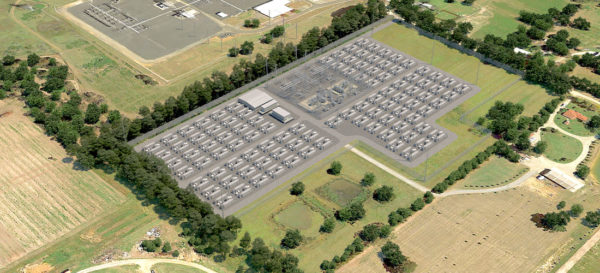
Image: Maoneng
Zhou has previously said batteries will play an increasingly important and necessary role as Australia transitions from traditional energy sources to renewable energy, a sentiment backed by Australian Renewable Energy Agency (ARENA) chief executive Darren Miller.
ARENA earlier this month announced a $100 million competitive funding round for grid-scale batteries which Miller said will play a crucial role in accelerating the transition to renewable energy.
“Grid-scale batteries and other types of energy storage technology will be vital to support our future electricity system powered by renewables,” he said.
The Australian Energy Market Operator’s (AEMO) Draft 2022 Integrated System Plan forecasts that almost all of Australia’s coal-fired electricity generation will retire by 2040, to be replaced by wind and solar farms backed up by at least 30 GW of grid-scale firming capacity capable of responding to a dispatch signal.
While there are seven big batteries currently in operation on the National Electricity Market (NEM), AEMO has identified a further 23,418 MW of battery storage capacity in the planning pipeline.
Maoneng said it expects to announce an engineering, procurement, and construction (EPC) contractor for the Mornington BESS in the coming weeks.
“There are also commercial opportunities during construction, and more work on the supply chain will begin soon as our contractor comes on board and begins the process of hiring individuals, companies and equipment suppliers as the project gets up to speed,” Zhou said.
Maoneng said the $190 million project is expected to generate up to 160 full-time equivalent jobs during its 12-month construction phase.
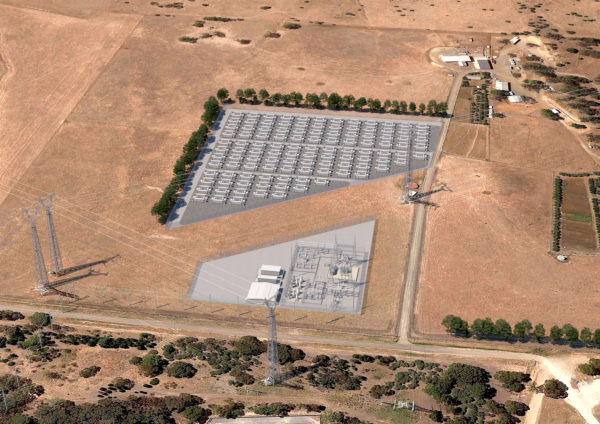
Maoneng
The Mornington BESS forms part of Maoneng’s bold plan to build more than 1.8 GWh of utility-scale battery energy storage system projects across Australia, including the Gould Creek BESS near Adelaide in South Australia.
Maoneng has already obtained planning approval from the South Australian government for the 225 MWp/450 MWh two-hours’ duration project, which is to be located next to the Para transmission substation, just over 20km from the state capital’s CBD.
Construction is set to begin on the battery in late 2022, with the project expected to be fully commissioned by the end of 2023.
Maoneng also has three other standalone battery storage projects on the go, with about 400 MW spread between sites at Lismore and Tamworth and the Sunraysia solar farm site near Balranald in south-west New South Wales.
Maoneng, which co-owns the 200 MW Sunraysia Solar Farm and operates the smaller 13 MW Mugga Lane Solar Park in the Australian Capital Territory, has plans to install a 50 MW/100 MWh big battery at the Sunraysia site.
This content is protected by copyright and may not be reused. If you want to cooperate with us and would like to reuse some of our content, please contact: editors@pv-magazine.com.
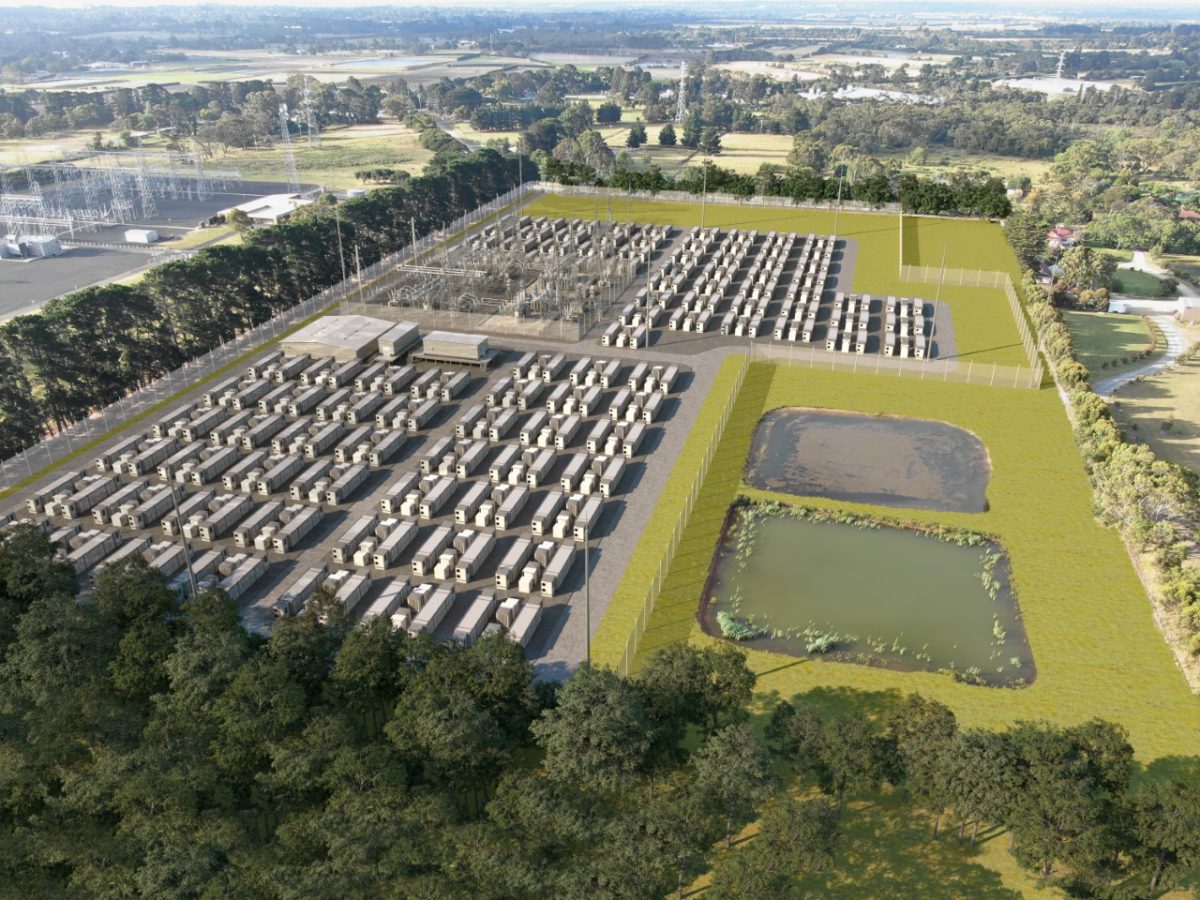


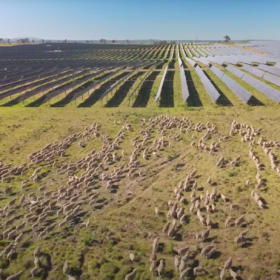
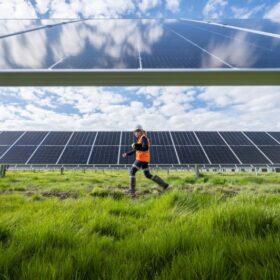
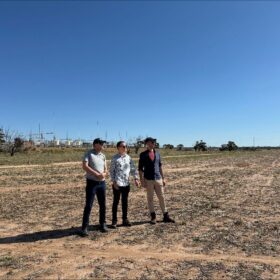
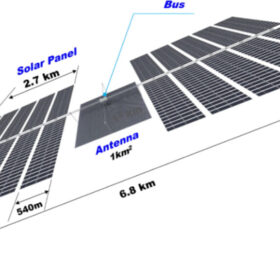
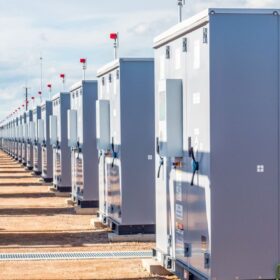
1 comment
By submitting this form you agree to pv magazine using your data for the purposes of publishing your comment.
Your personal data will only be disclosed or otherwise transmitted to third parties for the purposes of spam filtering or if this is necessary for technical maintenance of the website. Any other transfer to third parties will not take place unless this is justified on the basis of applicable data protection regulations or if pv magazine is legally obliged to do so.
You may revoke this consent at any time with effect for the future, in which case your personal data will be deleted immediately. Otherwise, your data will be deleted if pv magazine has processed your request or the purpose of data storage is fulfilled.
Further information on data privacy can be found in our Data Protection Policy.